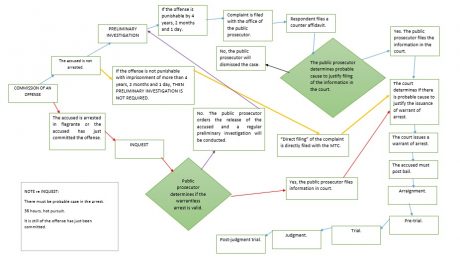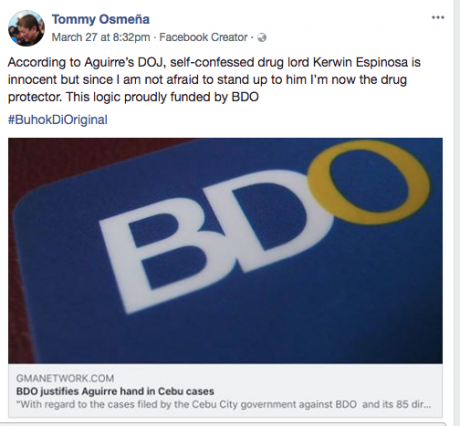Saturday, March 31, 2018
March 31, 2018 - A Christian Only Rents a Tomb
| ||
|
Psychologists Explain Why You Should Be Friends With People Who Swear A Lot
Rachel-Lee Thomas, Staff Writer
July 12, 2017
D.L. Hughley, Contributor
 youtube
youtube



https://www.providr.com/intelligent-people-stay-late-love-swearing/?utm_source=dlhughley&utm_medium=facebook&utm_campaign=providr&f=one
July 12, 2017
D.L. Hughley, Contributor
Providr not only provides thorough, well written content, but also creates passionate and meaningful stories. From beginning to end, their content is refreshing and informative. Keep publishing and I'll keep reading.
Growing up, we’re usually taught to refrain from swearing because it’s inappropriate and rude. There’s definitely a bit of a social stereotype in which those who swear are seen as uneducated, but according to a recent study, potty mouths might be a lot smarter than they were once perceived.
 youtube
youtube
Tons of people have the opinion that people who swear frequently only do it because they don’t have the vocabulary to express themselves intelligently, but psychologists Kristin Joy of Marist College and Timothy Jay of Massachusetts College of Liberal Arts disagree with this.
According to their findings, people who use ‘taboo words’ are actually more likely to be fluent in mundane, neutral words. ‘People who use taboo words understand their general expressive content as well as nuanced distinctions that must be drawn to use slurs appropriately,’ the researchers wrote. ‘The ability to make nuanced distinction indicates the presence of more rather than less linguistic knowledge.’
Another study used technology to test thousands of Facebook statuses searching for people who use swear words and for words that indicate deception. The study found that those who used swear words were more likely to be honest. So basically, if you swear like a sailor you’re honest and intelligent.

Researchers say that those who swear more often are more comfortable expressing themselves and are therefore being more genuine than someone who refrains.

Other studies can back up all of these findings. For example, in criminal cases, innocent suspects are more likely to curse than a guilty one who is denying accusations, and if you swear during a testimony, you are seen as more credible.
So basically, swearing isn’t such a bad thing after all! The next time someone gets mad at you for dropping an F-bomb, just say you were being smart and honest. It’s all in the science! Check out this video to get more facts in detail.

Click on the ‘Next Post’ to read something similar. Don’t forget to SHARE with your friends on Facebook
https://www.providr.com/intelligent-people-stay-late-love-swearing/?utm_source=dlhughley&utm_medium=facebook&utm_campaign=providr&f=one
Friday, March 30, 2018
March 30, 2018 - Invitation to Intimacy
| ||
|
Thursday, March 29, 2018
Filipinos need to be taught how to think and not to simply believe

Filipinos need to learn how to think. It is imperative that they do because many things about the 21st Century demand an uplift in thinking. We can see how important this is in the recent events that have plunged Western-style democracy into crisis. It had become evident that men working with machines could turn human intuition against humanity.
Social media has put even more power in the hands of people who are skillful in the art and science of persuasion. Whereas, in the past, people in the business of persuasion (advertisers, marketers, public relations consultants, propagandists, etc.) only had TV, radio, and print as tools of their trade, today social media provides an unprecedented feedback mechanism that enables these professionals to progressively hone their message and more precisely target these messages. As a result, people who perceive themselves as “victims” of this new and insidious (these victims claim) form of persuasion are on a warpath.
What is dominating the discourse surrounding the “weaponisation” of social media is whether or not governments should step in to regulate it. Considering the increasingly evident addictiveness of social media, it won’t be surprising if efforts to regulate it will take the form of measures similar to the control of addictive substances like narcotics, alcohol, and tobacco. If so, then we should also consider the education that goes hand-in-hand with the regulation of addictive substances. In most schools today kids are taught about cigarettes, alcohol, and drugs and are educated on the consequences of the abuse of these substances. The policy and educational infrastructure applied to the mitigation of the effects on society of conventional substance abuse is such that many of the tenets of these initiatives have become household slogans — “Don’t drink and drive”, “No hope in dope”, and “Be smart, don’t start”.
The 21st Century, however, is the information age. As such, many of society’s deadly opiates today come in the form of addictive information. Much like the way drugs, alcohol, and cigarettes dull the senses, information opiates dull the mind. This truism is specially relevant in the Philippines as there seems to be an increasingly compelling correlation between national intellect and the sorts of topics that “trend” amongst its Netizens. Recently it had come to the attention of some that average IQ in the Philippines ranks below that of other southeast Asian countries. And when we look at “trending topics” on, say, Twitter, we find that topics on showbiz overwhelmingly dominate the Philippine list compared, say, to Singapore’s and Malaysia’s which have more diverse lists.

It’s a chicken-and-egg question. Do trending showbiz topics make Filipinos dumb or do dumb Filipinos make showbiz topics trend? To be fair, correlation does not necessarily indicate causation. So, how strong the causal link between dumb Filipinos and tending showbiz topics (and vice versa) is will have to be determined in a more scientific study. Nonetheless, there is enough anecdotal evidence to warrant enough pause to consider the serious educational and cognitive deficits in Philippine society.
The degree to which the political discourse is polarised in the Philippines is a disturbing indicator of how much Filipinos remain beholden to beliefs and personal loyalties at the expense of sound reasoning on the basis of facts and logic. Most issues of national consequence are not as cut-and-dry as Filipinos’ loyalties. Reproductive health, for example, is an issue politicians and partisans in both camps share many common positions on. The same can be said about many other important concerns like economic development, education, poverty alleviation, modernisation of the armed forces, and even crime and control of drug abuse and trafficking. As such, there is more opportunity to work together than work against one another. Yet, Filipinos’ primitive approach to the practice of democracy is not consistent with this reality.
An important thing to consider is the participation of the Philippines’ Roman Catholic Church in partisan politics. Whereas ordinary lay Filipinos, regardless of their individual political affiliations, have much in common with one another in their views on national issues, the Catholic Church takes unequivocal and non-negotiable positions on many of these that clearly cause divisions in society. The Church is categorically opposed to birth control, gender equality, diversity in sexual orientation, and freedom of expression. Worse, the Catholic Church provides disproportionate backing to a single political clique — the Liberal Party, a.k.a. the Yellowtards as evident in the disproportionate number of Yellowtard events that feature Catholic masses and other Catholic rituals and are graced by Roman Catholic officials.

What is the common denominator amongst the Church, personality-based politics, and showbiz? That’s easy — it is the way of thinking at work. These three opiates of Philippine society don’t require thinking based on sound and complete information. People whose minds are occupied by the Church, political personalities, and showbiz habitually and, as a matter of routine, take the ultimate cognitive shortcut — belief and faith. Belief and faith do not require much information input. They only require minds that are comfortable with skipping thinking altogether. The Church, in fact, teaches the most dangerous dogma of all — that one must believe unconditionally.
Thus the only really baffling thing today is why we continue to be baffled by the spread of “fake news”. The reason for this is really quite obvious. Filipinos do not know how to think and, as a result, often skip that step altogether when forming opinions and conclusions. Indeed, the latter is an oxymoron in that context. Conclusions formed in the absence of an input of reliable information and sound thinking are actually not conclusions but mere beliefs.
The first step to re-educating Filipinos is an obvious one. Filipinos need to be taught how to think and not simply to believe. Then Filipinos need to be trained to think habitually and as a matter of routine. There’s yet another obvious solution right there. As with most problems that the Philippines face in its aspirations to develop into a modern and prosperous society, much of the solutions are obvious.
print
Pinoy Ako Blogger Jover Laurio Defends Cebu City Mayor Tommy Osmena Illegal Drugs Accusation
Whenever someone is publicly accused of a crime, the objective way to view it is to realize that accusations as well as defenses against those accusations all still have to be scrutinized in a court of law.
One clear indication of a shill or paid hack is their readiness to attack or defend someone accused of a crime. Another is indication is that they will discredit, dismiss, and ignore anything contrary to their view.
Pinoy Ako Blogger Jover Laurio recently published an open letter supporting Cebu City Mayor Tommy Osmena against an impending complaint which Justice Secretary Vitaliano Aguirre says he is readying.
According to reports, the complaint being prepared will be based on an affidavit and a witness’ testimony saying that Mayor Osmena is on the payroll of drug lords.
Aguirre identified the witness as Reynaldo Diaz alias “Jumbo” who executed an affidavit on Nov. 23, 2016. Diaz is the cousin of the late Jeffrey Diaz alias “Jaguar.”In the affidavit of the witness, Aguirre said Osmeña allegedly received P2 million for hospitalization expenses in 2013 and P5-million during the 2016 elections.
In order to appreciate just how premature and over eager Laurio’s letter of support is, let me point out that the filing of a complaint (presumably with the National Prosecutorial Service) precedes the possible filing of formal charges.

At this point, as far as my understanding as a non-lawyer goes, Osmena hasn’t even been formally accused or charged with a crime.
What Secretary Aguirre stated in the article I quoted was his intention to have the affidavit/witness linking Mayor Osmena to the drug trade investigated and if basis is found, formal charges against Osmena should be filed.
Ladies and gentlemen, this is your much loved DUE PROCESS at work here.
Does Laurio want Justice Secretary Aguirre to ignore information which could potentially lead to charging someone who committed a crime? Shouldn’t public government officials be held accountable and their lives subjected to scrutiny?
A well known Public Relations practitioner who specializes in litigation PR once told me that negative publicity trained against those filing information on a crime is one way to sow doubt on the highly probably unfavorable outcome of a case.
Indeed, most of Laurio’s post wreaks of a poorly played attempt to discredit Justice Secretary Aguirre.
First by making fun of Aguirre’s wig.
Then name dropping Vice President Leni Robredo, who seems to be siding with Cebu City Osmena.
Thing is, I didn’t expect Laurio to be wise to the real value of what Robredo said about Osmena and that is next to nothing.
Leni says, “matagal na kasama sa trabaho” (English translation: “they’ve worked together for a long time”). Osmena is mayor of Cebu city and Jesse Robredo was mayor of Naga city, how can they work together? Even in a figurative sense, how can this be a basis of assessing Osmena’s character?
Moreover, it doesn’t even say anything about the merit of the information about to be filed on Osmena and this is chiefly because Leni, unless she has spies in Aguirre’s office, doesn’t know what the information will contain.
If there is ANY value in Leni’s statement, it is to endear herself to those who voted for and supported Osmena in the hopes of getting their support. If Osmena is formally accused for having received money from drug lords and loses support from his kababayans, I doubt Robredo will brandish her “close” association with him.
Although I had initially speculated that Jover Laurio had been “hired” to write a post “defending” Osmena, I realize now that it may also be part of the continuing effort of a “well oiled infrastructure” that supports the decriminalization of currently illegal drugs — marijuana, LSD, MDMA, etcetera.
Human Rights Watch, an organization which seems allied with the likes of Robredo and others in the opposition, stated “Human Rights Watch calls on governments to decriminalize all personal use and possession of drugs.”
Of course, that may sound like a conspiracy theory but not nearly as out-of-this-world as Cebu city Mayor Osmena’s claims that BDO is behind Aguirre’s move to link him to illegal drugs.
If I were Osmena, I’d probably fire whoever is running his Facebook page because posts like this make him look a bit buzzed. (Sniff! Sniff!)
Anyway, as long as Justice Secretary Aguirre is looking into information linking Osmena to illegal drugs, he might as well look into something that a source of mine told me:
“A guy named Franz Sabalones replaced Jaguar in Cebu City and he is said to be very close to the police. When the police in Cebu city were replaced, Mayor Osmena was afraid that his income from the illegal drug trade would disappear. In return, Osmena took away the city’s support for the PNP in Cebu city. Now Tomas is waging war with Aguirre knowing that his links to the illegal drug trade will be uncovered because of this links with Jaguar and Sabalones.”
print
Love can draw forth good even from the worst of situations.
| ||
|
Wednesday, March 28, 2018
March 28, 2018 - Unmasking the Betrayer
| ||
|




